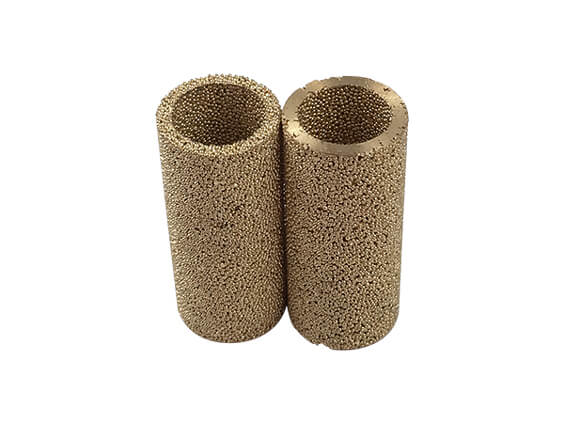Sintered bronze filters, a staple in fluid and gas filtration systems across industries, have garnered both praise and criticism for their unique properties. As manufacturers and engineers increasingly prioritize durability and precision, understanding the pros and cons of these filters becomes essential. Here’s an in-depth look at their benefits and limitations.
Advantages of Sintered Bronze Filters
1. Exceptional Durability: Sintered bronze filters are renowned for their mechanical strength and resistance to high temperatures, making them ideal for harsh industrial environments. Unlike plastic or paper filters, they withstand corrosive chemicals and extreme thermal conditions without degrading.
2. Consistent Pore Structure: The sintering process creates a uniform porous structure, ensuring reliable filtration of fine particles (typically ranging from 5 to 100 microns). This precision minimizes contamination risks in sensitive applications like hydraulic systems or fuel injection.
3. Reusable and Cleanable: Unlike disposable filters, sintered bronze variants can be repeatedly cleaned using chemical solvents, ultrasonic methods, or backwashing, reducing long-term costs and environmental waste.
4. High Pressure Resistance: Their robust construction allows them to endure high-pressure systems without collapsing, a critical feature in oil and gas or aerospace applications.
Disadvantages of Sintered Bronze Filters
1. Higher Initial Cost: The manufacturing complexity of sintering bronze powder into a cohesive matrix results in a higher upfront cost compared to polymer or ceramic alternatives.
2. Susceptibility to Clogging: While reusable, the fine pores can become clogged with viscous fluids or particulate-heavy media, requiring frequent maintenance in demanding settings.
3. Weight Considerations: Bronze filters are heavier than plastic or composite options, potentially limiting their use in weight-sensitive applications like portable machinery.
4. Limited Porosity Customization: Once sintered, the pore size and density cannot be altered, restricting flexibility if filtration requirements change.

